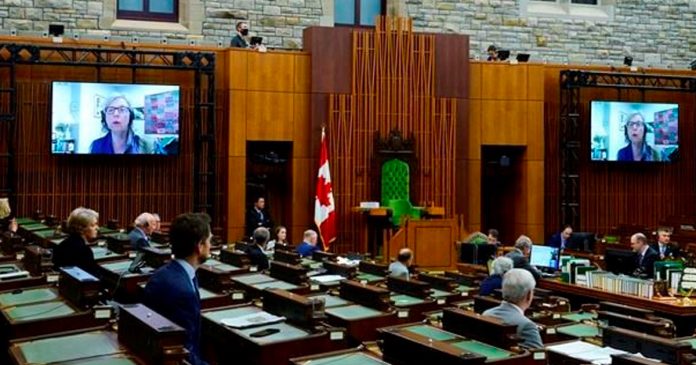Surely there must have been some discomfort among our MPs as they sat to hear Finance Minister Chrystia Freeland deliver her budget to the downtrodden whilst knowing that in a few short days — on April 1st to be precise — their annual salary will jump by $5,100.
April Fool’s Day is, therefore, an apropos day for our federal politicians to play us for fools by grabbing more of our money while padding their own pockets at the same time.
It’s ingrained in the system; presumably so beat-up taxpayers don’t know they’re taking another hit while inflation is crippling them and food prices have the CEOs of the major grocery chains flying to Ottawa with wiped smiles to explain themselves and their record profits.
There will be no headline on April 2, for example, telling the public that Prime Minister Justin Trudeau will start getting an extra $10,200 on April 1, based on contract data published by the government of Canada.
It will just happen.
This, however, will make it the fourth pay raise since the outset of the pandemic, with backbench MPs pocketing an extra $5,100.
A backbencher currently collects a $189,500 salary, which is not exactly chump change. Cabinet ministers take home $279,900. Trudeau gets $379,000 from taxpayers.
“Do they really think they should take thousands more from their constituents, many of whom are struggling to fill the fridge?” asks Franco Terrazzano, federal director of the Canadian Taxpayer Federation.
Terrazzano is like a dog on the bone when it comes to MP salaries, especially when the electorate is legitimately crying poor and unable to take another hit to their household income.
The federal government, via Ms. Freeland, is set to offer about $3 billion over five years in tax credits to boost Canadian clean technology investments, and to spend $2.4 billion to help low- and middle-income households with the high cost of living, or so says various confidential sources.
But will they finally rein in the carbon tax?
On Monday, the CTF released a Leger poll that showed, not surprisingly, that four out of five Canadians oppose the April 1 pay hike to all MPs, at the same time, there are calls out to Freeland to stop the carbon tax and the escalating alcohol tax which also kicks in on April 1.
“MPs are taking higher pay the same day they take more money from Canadians and that’s wrong,” said Terrazzano. “At the very least, Freeland must cancel the MP pay and tax hikes in the budget.”
The Trudeau government claims that “families are going to be better off” with its carbon tax and rebates. It expects us to believe it can raise taxes, skim some off the top to pay for scores of new programs and still make us better off.
As Terrazzano put it, the Parliamentary Budget Officer — the taxpayers’ watchdog — has warned against believing such spin.
”The carbon tax will cost the average family between $402 and $847 this year, even after the rebates,” wrote Terrazzano.
While Ottawa sticks Canadians with higher bills, other countries have provided relief. The CTF identified 51 national governments that cut taxes during the pandemic and as inflation took off.
That includes more than half of G7 and G20 countries and two-thirds of the countries in the Organization for Economic Co-operation and Development.
Australia cut its gas tax in half. India cut its gas tax to “keep inflation low, thus helping the poor and middle classes.”
The United Kingdom announced billions in full tax relief. South Korea cut its gas tax by 30%. Germany, the Netherlands, Italy, Israel, Peru, Poland and 25 Indian states also cut their fuel tax.
Here in the Great White North?
Zilch.





















